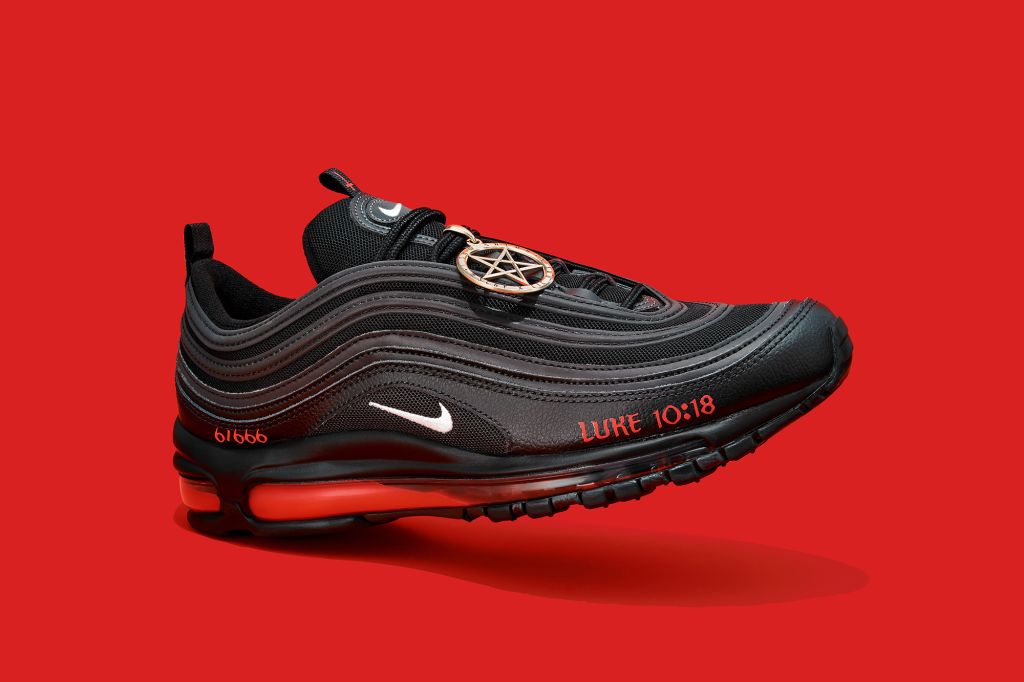In recent years, the custom sneaker industry has experienced significant growth, with enthusiasts and entrepreneurs alike tapping into the market for unique and personalized footwear. While the creative aspect of designing custom sneakers is undoubtedly exciting, it’s essential to understand the legal considerations that come with selling these one-of-a-kind products.
From trademark issues to consumer protection laws, navigating the legal landscape is crucial for ensuring a successful and compliant custom sneaker business.
1. Trademark and Intellectual Property Rights
One of the primary legal considerations when selling custom sneakers is ensuring that your designs do not infringe on existing trademark or intellectual property rights. Before launching your products, conduct thorough research to ensure that your designs do not mimic or copy existing logos, patterns, or brand elements.
Protecting your own designs through trademark registration can also safeguard your creations from being copied or imitated by others in the market.
2. Licensing Agreements
If you plan to use licensed materials, such as branded logos or copyrighted artwork, in your custom sneaker designs, it’s crucial to secure the necessary licensing agreements. Failure to obtain proper permissions can result in legal disputes and potential financial penalties.
Work with legal professionals to draft licensing agreements that outline the terms of use for the licensed materials and protect your business from legal liabilities.
3. Consumer Protection Laws
As a seller of custom sneakers, you are subject to consumer protection laws that govern product safety, advertising practices, and consumer rights. Ensure that your products meet safety standards and regulations to avoid potential product liability claims.
Transparent and accurate advertising of your custom sneakers is also essential to comply with consumer protection laws and build trust with your customers.
4. E-Commerce Regulations
If you sell custom sneakers online through your website or third-party platforms, familiarize yourself with e-commerce regulations that apply to your business. Privacy laws, data protection regulations, and online sales tax requirements are among the legal considerations that online sellers must address.
Implementing secure payment systems, clearly communicating shipping and return policies, and protecting customer data are essential steps to comply with e-commerce regulations.
5. Contractual Agreements
When collaborating with artists, manufacturers, or distributors to create and sell custom sneakers, having clear contractual agreements in place is crucial to protect your business interests. Contracts should outline the rights and responsibilities of each party, payment terms, intellectual property ownership, and dispute resolution mechanisms.
Working with legal professionals to draft comprehensive and enforceable contracts can prevent misunderstandings and legal disputes down the line.
6. Compliance with Customs and Import Regulations
If you sell custom sneakers internationally or source materials from overseas suppliers, compliance with customs and import regulations is a critical legal consideration. Familiarize yourself with import duties, tariffs, and restrictions that may apply to your products to avoid customs delays or penalties.
Maintaining accurate import records and adhering to international trade regulations can help streamline your business operations and ensure compliance with legal requirements.
7. Product Liability Insurance
Protecting your custom sneaker business from potential product liability claims is essential for mitigating financial risks and safeguarding your brand reputation. Consider investing in product liability insurance to cover legal expenses, settlements, and damages in case of product defects or injuries caused by your custom sneakers.
Consult with insurance providers to tailor a policy that meets the specific needs of your business and provides adequate protection against potential liabilities.
8. Dispute Resolution Mechanisms
In the event of legal disputes or conflicts related to your custom sneaker business, having effective dispute resolution mechanisms in place can help resolve issues efficiently and amicably. Consider including arbitration or mediation clauses in your contracts to facilitate the resolution of disputes outside of court.
Working with experienced legal professionals or mediators can help navigate complex legal issues and reach mutually beneficial solutions.
9. Compliance with Environmental Regulations
As sustainability and ethical sourcing become increasingly important in the fashion industry, custom sneaker sellers should be mindful of environmental regulations and ethical practices. Ensure that your manufacturing processes adhere to environmental standards, such as waste management, energy efficiency, and sustainable sourcing of materials.
Communicating your commitment to environmental responsibility can resonate with eco-conscious consumers and differentiate your brand in the market.
10. Stay Informed and Seek Legal Guidance
The legal landscape surrounding custom sneaker sales is constantly evolving, with new regulations and industry standards emerging regularly. Stay informed about legal developments that may impact your business and seek legal guidance from professionals with expertise in intellectual property, consumer protection, and e-commerce laws.
Proactively addressing legal considerations and compliance requirements can help you build a successful and sustainable custom sneaker business while minimizing legal risks.
Conclusion
In the dynamic and competitive custom sneaker market, understanding and addressing legal considerations are essential for navigating regulatory challenges, protecting your brand, and ensuring long-term business success.
By following the tips discussed, custom sneaker sellers can build a legally compliant and resilient business that resonates with consumers and stands out in the market.
Key Takeaways:
- Trademark and intellectual property rights are crucial considerations to avoid infringement and protect your custom sneaker designs.
- Secure licensing agreements for any licensed materials used in your designs to prevent legal disputes and financial penalties.
- Adhere to consumer protection laws to ensure product safety, accurate advertising, and consumer trust.
- Familiarize yourself with e-commerce regulations for online sales, including privacy laws, data protection, and sales tax requirements.
- Establish clear contractual agreements with collaborators to protect your business interests and prevent disputes.
- Comply with customs and import regulations when selling internationally or sourcing materials from overseas suppliers.
- Consider investing in product liability insurance to mitigate financial risks and protect your brand reputation.
- Implement effective dispute resolution mechanisms, such as arbitration or mediation clauses, to resolve conflicts efficiently.
- Stay informed about environmental regulations and ethical practices to align with sustainability standards and consumer expectations.
- Seek legal guidance from professionals with expertise in intellectual property, consumer protection, and e-commerce laws to ensure compliance and minimize legal risks.
For a comprehensive understanding of legal considerations in the custom sneaker industry and to further enhance your knowledge and skills in this field, consider enrolling in the FIT x Complex Sneaker Essentials online course and certificate program offered by Yellowbrick.
This specialized program can provide valuable insights and practical strategies to help you navigate the legal landscape and succeed in the custom sneaker business.




